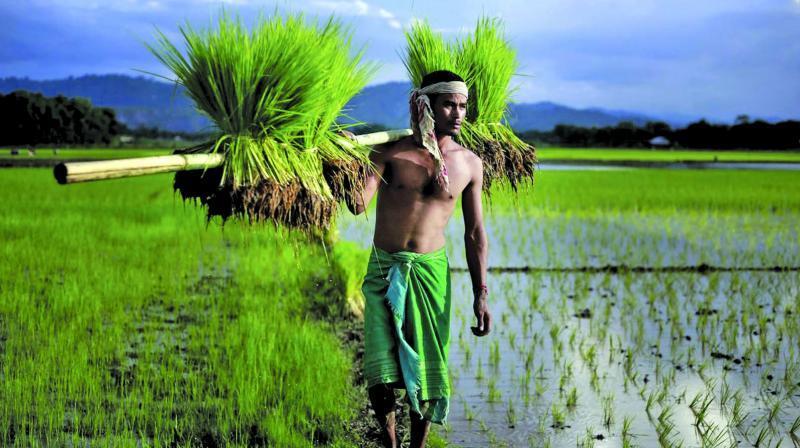More attention to the ground level realities. The social and economic and the panchayat level reforms are critical. These further details call for critical analysis on policy implementation.
The revival of the economy seems to be very much dependent upon the agri sector. All other sectors, industry, infrastructure etc seem to be still in the lockdown mode.
This kharif season agri output is projected at 108.22 million tonnes, as the kharif acreage hits all time high as a newspaper headlines scream!

The government has put lot of emphasis on small and marginal farmers in the revival of economic growth, rightly so therefore!
As the vast majority of farmers belong to this category only, it is only right that we seem to care much for these two segments of millions of farmers, the small households in the rural India. Indian agricultural transformation depends very much on what we do for this farming segment and what is happening already is a question we have to examine much more carefully and also what we find from the ground realities. These two segments lie at the very bottom of the pyramids to say.
In our experience the old regime is also like what the new regime with all its noise is going. Agriculture and rural development doesn’t get wet we are all talking about!
Technological revolution is transforming Indian society. including the agri sector. There is this smart phone revolution. Now, in almost every household in the villages, the new generation of boys and girls, the IT tech has transformed their lives, they are educated and aware and they use smart phones and the governments must do much more than what is being done and more so now, after the Covid menace online usage is increasing.
In agriculture, there is also the digital revolution. From now onwards technologies are becoming everyday reality. This is a new field and a vast territory and only more qualified. Hands can do justice by taking up this awareness campaign.
This is now a sadly neglected area and given the current environment when most of our exerts are urban based professionals, economists or retired bureaucrats, the grass roots realities of India seldom get attention.
Though Covid is a great tragedy and disrupted much of our normal life and created much agony and great losses it seems that Indian won’t be the same again unfortunately. Digital transformation of much of our society must be welcomed for what it is capable of doing and also still newer techs like AI and Cloud and others could help to impact the life of the people outside the offices and let us hope much of our farming scenario would be impacted by the many revolutions including the much-touted digital one!
Our point is that right now, the many tech revolutions seem somewhat far away or far ahead. The people at the bottom level are yet to seem to get the benefits in their day to day lives. The potential for much change seems visible and yet the lives of the hapless farmers who had suffered much for lack of priorities for so long remain where they were. For much of our post-Independence period, right?
There are many other issues at the grassroots level. One is the panchayat raj institutions
We restrain further comments or such revelations might antagonise the local vested interests. As we have been long saying as of today a small farmer is either a debtor or a litigant or both.
Life in the villages is not so easy and pleasant, as we all seem to imagine.
So, one more lesson for tackling the rural realities that stand in the way of further progress is to realise, for the experts and the expert professionals, in the Indian scene, either an economist and bureaucrat is that these category of experts also live in fear of the incumbent governments. So, you really don’t get realistic appraisal of many of the policies.
Now, we feel the time also has come to realise that we shouldn’t simply talk of policies in general, vague terms. We need not mention. The government policies in vague terms, we have to further analyse the implementation details and then come to comment, be it the ease of doing business or many other bureaucratic hurdles in policy implementations. One more aspect of rural development policies is the state of public opinion at the grass roots levels, the media is not a free media anymore and everywhere. These are stray thoughts and we need a more open society and a commitment for values like truth and honesty in politics. Perhaps, the education spread and growth in social media can partially rectify the current deficiencies.